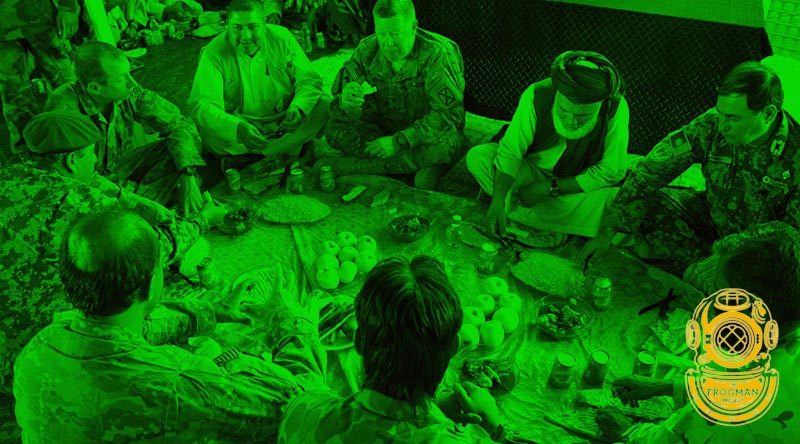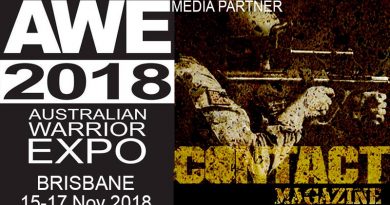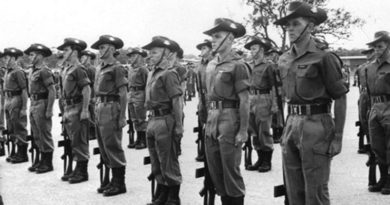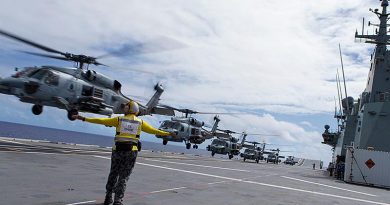Frogman Project – Mindset and Mental Agility

The Frogman Project knows how important this topic is for the success of SF candidates and general-entry military alike. For this article, we caught up with an old friend, Nathan, who was a former military member and worked in this field.
Discomfort, suffering, fear and pain are only temporary. This is the first thing to remember when confronted with a difficult situation.
We focus heavily on physical preparation for adverse situations, but we do little to focus on mental preparation and mindset.
Mental toughness is an expected bi-product of military training. As such, when many people are faced with a situation that is outside of their mental comfort zone, they often have trouble dealing with it because of a lack of mental agility and flexibility.
An example of this was during an SF selection course when a candidate was tasked to approach a source in a gay bar to solicit important information pertaining to his mission. The candidate was in excellent physical condition and had above-average capability as a soldier, but lacked the mental agility to succeed in the task at hand as he did not feel comfortable interacting with a flamboyantly homosexual man.
He left the training scenario without successfully receiving the information.
While the above example was not the end for this candidate, it serves to highlight a potential training gap for anyone attempting to succeed in a high-performance role.
You will be put in situations you find uncomfortable and you will be expected to succeed.
.
Do you have the Mental Agility?
In joining the military, soldiers adapt to fit the cultural mould that they see during initial training. While this is beneficial in fostering a strong sense of teamwork and mateship, it is at the detriment of our ability to socialise with civilians and succeed in non-combat situations.
All serving personnel will experience an obvious cultural difference with the civilian population. There are endless examples on the internet relating to that disconnect.
When we are faced with mission objectives that require contact with civilians, we often fall short because of that cultural difference. We are not trained to succeed in that environment, as most of our previous training relates to combat situations.
In fact, this is why some training courses put you in non-combat scenarios – because training staff know it will be challenging.
If you want to increase your chances of success, it is important to have a wide base of knowledge in a broad variety of subject matter.
This is critical for your mental agility.
If you are able to engage on widely ranging topics, you are more likely to be able to find common ground with strangers. That common ground will give you access to individuals who would typically avoid contact.
Remember it is easy to socialise and be friendly to those we like – it is far more difficult to be the same towards people we dislike.
Mission scenarios will often put you in a situation where you have to ingratiate yourself to someone you don’t like to see how you respond.
This is an area where soldiers seem to have the most difficulty in succeeding.
.
How do we train for such circumstances?
Don’t just prioritise physical training – balance your physical training with mindset preparation.
Force yourself into situations you would typically be uncomfortable in, and learn to adapt your mindset to fit.
If you learn to be mentally agile, the chances of mission success increase exponentially.
Find the opportunity to push yourself mentally on a daily basis.
Read as broadly as possible.
News, books, articles, anything from the New York Times to The Art of War to Cosmo magazine (you would be surprised how much that last one has helped me in non-combat training scenarios).
Try to understand viewpoints that are counter to your own and don’t criticise them out of hand.
The more you know and the more you try to understand, the easier it is to adapt to a fluid environment outside of the usual combat scenarios.
These strategies will not only assist you in military courses and training, but will also assist you in succeeding when you are not in a military environment.
Learn more about Nathan at Level Up Together
FILE PHOTO: A Shura at Patrol Base Wali in southern Afghanistan.
Photo by Leading Aircraftman Leigh Cameron.
.
.
.
.
.

.
.

.






